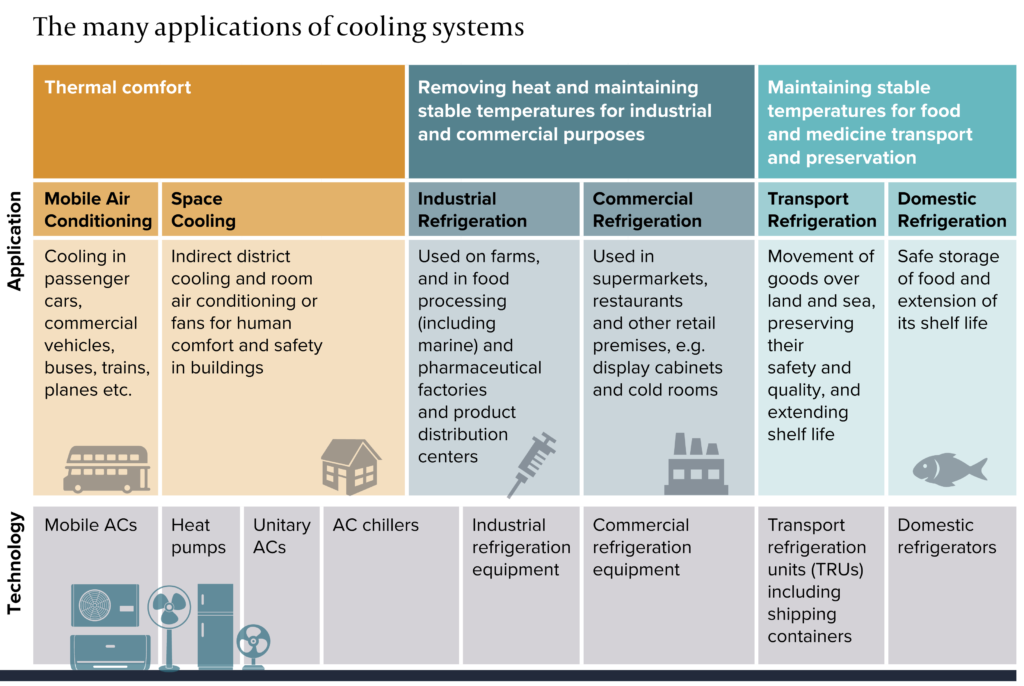The cooling services industry (air-conditioning and refrigeration) saw a significant expansion during the twentieth-century industrial revolution in Europe and North America. As developing economies grow, countries such as China, India, and Nigeria are experiencing a surge in demand for these products.
According to a 2020 study by the United Nations Environment Program, around 3.6 billion cooling appliances are in use now for cooling buildings and refrigerating food and other things such as medications; this figure is anticipated to rise to 9.5 billion by 2050.

People seldom consider cooling services when considering environmental issues that must be addressed. When you consider global energy use and greenhouse gas emissions, it has a huge influence.
Cooling an area, whether it’s a family refrigerator or an air conditioner, takes a lot of energy. Because our power systems rely primarily on fossil fuels, every energy used to lower temperatures releases greenhouse gases.

Also, when discussing the technique of cooling rooms, we must include refrigerants. Refrigerants are chemicals that are used to lower temperatures, and traditional refrigerants have a large potential for global warming when they leak into the atmosphere.

One of the key causes for concern regarding cooling services is the significant predicted expansion in not one, but two major industries. The first is in building cooling, which includes air conditioning of spaces.. The second is refrigeration, which involves keeping things such as meat, vegetables, and vaccines cold and safe throughout their supply chains.
The only option to lessen the environmental implications connected with the expansion of cooling services is to transition to clean energy grids; we will still have refrigerant emissions related with cooling, but we can absolutely cut grid emissions with this transition.
Reference- Knowable Magazine, arstechnica, UNEP Report, National Geographic, Annual Review of Environment and Resources






